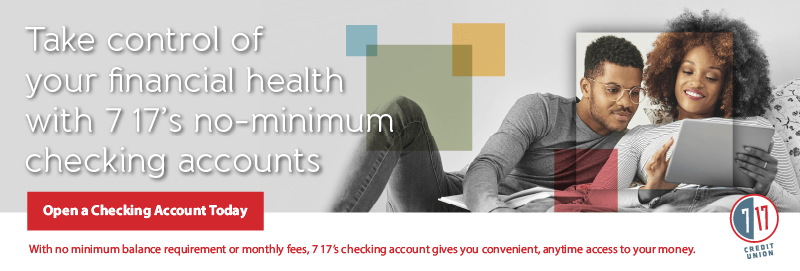- 7 17 Staff
How to Effectively Manage Credit Cards During High Inflation

Managing credit card debt can be difficult even in the best of times. Add in high inflation, and it can feel very overwhelming. We’re here to help with tips on how to manage credit cards and expenses during inflation.
How Inflation Is Impacting Credit Card Holders
Amid ongoing pressure in the economy and increasing prices, many people are only making minimum payments on their credit cards. On top of this, credit card utilization has increased and 57% of credit cards are held by people who live paycheck-to-paycheck.
These consumers are feeling the pinch of high inflation combined with increasing credit card debt, which can be even tougher to navigate when living paycheck-to-paycheck. It’s a very delicate balancing act that can lead to a lot of financial stress in addition to extended time frames to pay off debts, higher utilization of credit cards and increased interest rates. This is especially a problem if a balance is carried over from month to month on the account because the balance keeps rising while the funds available to pay the balance in full stay the same.
How To Manage Credit Card Debt and Everyday Expenses
When funds are tight, many people may turn to credit cards to manage basic expenses such as food and car costs — and may even forego making payments on certain bills because they need to prioritize expenses. Here are some ways to help manage expenses and alleviate some of the stress you may be experiencing:
Menu Plan
It doesn’t help with expenses when grocery costs are also increasing due to inflation. This may mean adjusting your grocery shopping strategy by going to a different store with lower costs or foregoing some more expensive items until your finances are in a better situation.
Go grocery shopping with a strategy in mind and a grocery list in hand — and stick to that list as much as possible. Of course, if you forgot to add an item you need to your grocery list, it’s okay to still purchase it. However, try not to veer too far from your list. Be conscious of the foods you’re preparing. For example, if you need a specific ingredient for one meal during the week, see what else you can make with that ingredient in order to stretch it out and cut down on purchasing additional ingredients.
Re-Evaluate Your Budget
Budgeting isn’t a one-and-done thing. It’s a good practice to periodically review your budget to look for areas to cut back on and to make sure your expense list is still accurate.
Money management apps and mobile banking apps are especially helpful when re-evaluating your budget because they can help you see where your money is truly going. For example, you may find subscription services that you no longer use that you’re still paying for, or maybe that you got takeout too many times in a week. By keeping track of your spending, you can optimize how much of your money is dedicated to certain expenses and discretionary spending, which can help alleviate some of your financial stress.
Consolidate Your Debt
Having a lot of debt can feel like a ticking time bomb, jeopardizing your financial wellness and potentially putting you at risk of bankruptcy. Debt consolidation can help streamline your expenses and give you some financial relief.
Consolidation combines several debts into one payment, which can potentially lower the amount of interest you’re paying and lower your credit utilization ratio, improving your credit score. It can also provide a more realistic and clear repayment plan that helps you better structure your debt reduction. However, once you’ve consolidated your debts, it’s important to try to avoid using credit cards.
What Benefits and Offers To Look for in Credit Cards
Credit cards can be used to fight inflation, but the key here is to be strategic and responsible by looking for credit cards that offer benefits that help you build your credit score.
Credit cards that offer 0% APR on balance transfers can be helpful for managing credit card debt because you can potentially transfer a high-interest balance over to the new balance transfer credit card. This will help you pay off the debt quicker because you’re not paying off interest, so you’ll see quicker wins. However, 0% APR on balance transfers is often only an introductory offer, so if this is an avenue you choose to pursue, it’s important to pay off the debt before the introductory offer ends.
Credit cards with 0% APR on new purchases can be beneficial during the introductory period, but it’s important to manage what you’re spending so it doesn’t get out of hand.
Rewards credit cards have a variety of beneficial offerings, from cash back (which can often be applied to your credit card balance) to travel miles or points. These credit cards may also offer extra fraud protection such as purchase alerts, fraud alerts and travel notifications.
Explore Credit Cards That Give Back
The most beneficial credit cards are those that do more, such as provide cash back, rewards points and more. Explore 7 17 Credit Union’s Rewards Credit Card today and learn how you can rack up points for travel discounts, merchandise and more.
